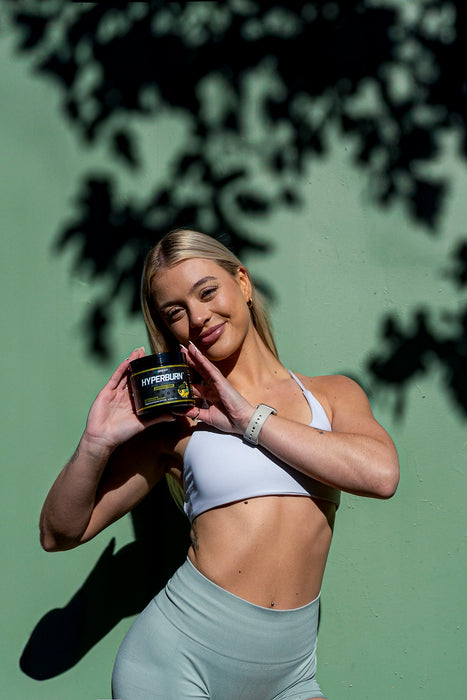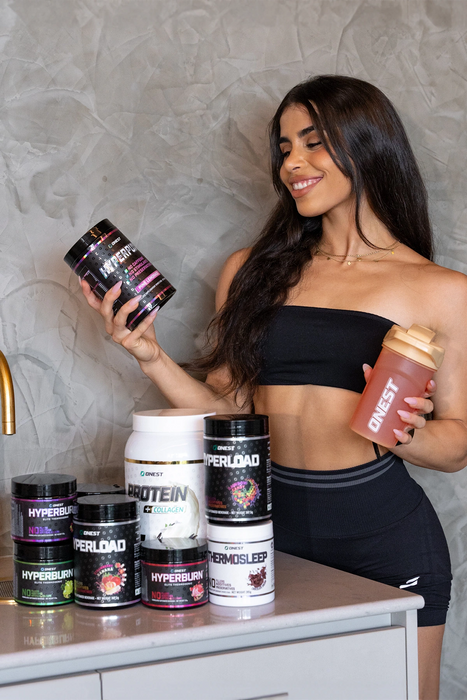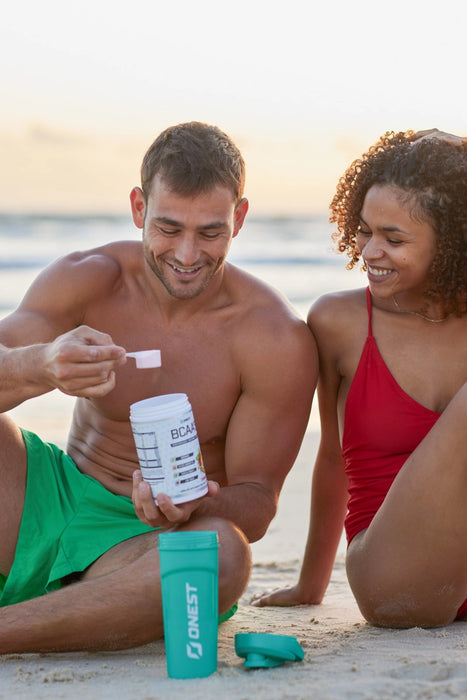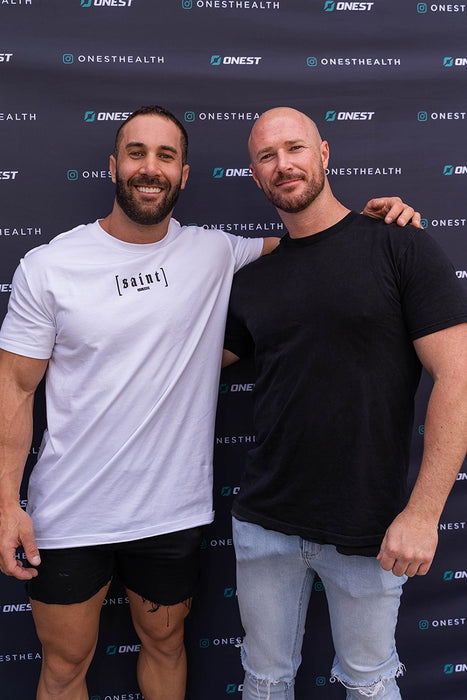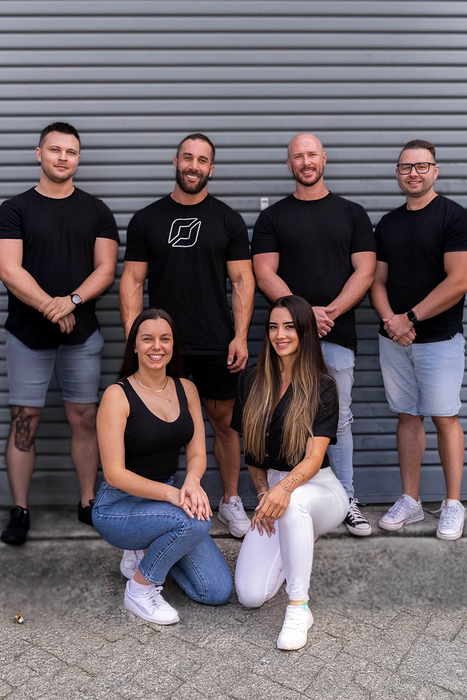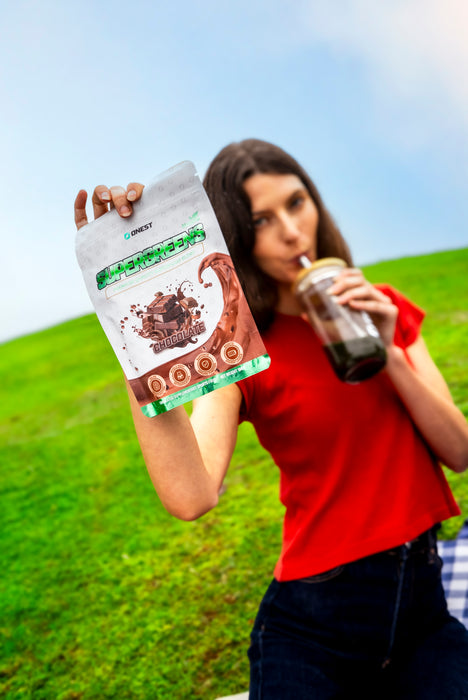THE ROLE OF ANTIOXIDANTS IN RECOVERY SUPPLEMENTS
Would you love to supercharge your recovery?
Do you take an antioxidant?
Should you start? (Possibly!)
You’ve likely heard that antioxidants are excellent for your health. These super supplements have been touted as beneficial for promoting longevity and anti-aging, pain relief, and disease prevention.
But what benefits can they offer for exercise recovery? (And, so, your performance and physique)
Several!
Let’s take a look.
Exercise causes free radical damage
When you hit the track, lift weights, or otherwise engage in exercise, your muscles get to work. This is wonderful for muscle growth and health promotion. However, if you love to overexert yourself, this can tip the scales.
Exhaustive exercise — when you push yourself hard — creates harmful molecules called free radicals. These molecules lead to oxidative stress, a condition akin to body rust, which damages your muscles and stresses your body.
The level of damage doesn’t depend on how intense the exercise is so much on how tired you become during the effort. Essentially, it matters how far you push yourself and how fatigued you become.
Regular training helps prevent the formation of these harmful molecules. The fitter you are, the further you can push. But there is a shortcut: antioxidants.
Antioxidants can protect your body from the damage caused by free radical production during exercise.
Antioxidants protect against free radical damage
How do antioxidants protect against free radical damage?
In a number of ways…
The reduction of body “rust”
One way is by halting the xanthine oxidase mechanism.
A study published in IUBMB Life found that “xanthine oxidase is involved in free radical formation in exercise in humans.”
The authors also noted that putting the brakes on this enzyme reduces the “rust” and muscle damage that result from exhaustive exercise. This study applied these brakes with a pharmaceutical compound. However, this isn’t the only way.
Research published in Marine Drugs found that astaxanthin significantly impedes xanthine oxidase activity. This natural compound is a powerful antioxidant that halts free radical production and acts against inflammation. Unsurprisingly, less oxidation and inflammation means less “rust” and faster recovery.
But what does this mean in practice?
A study published in the appropriately named Muscles investigated the impact of supplementing with astaxanthin.
Nineteen fit men were supplemented with 12 mg daily or a placebo for four weeks. They also underwent exercise trials. Trials one and three were designed to cause muscle damage. Trials two and four were designed to produce failure. During the trial, makers of delayed onset muscle soreness (DOMS) were collected.
The result?
Supplementing with astaxanthin “significantly decreased subjective markers of DOMS compared to the placebo.”
In short, daily supplementation with astaxanthin may boost recovery.
Astaxanthin is a powerhouse, but your body cannot produce it. Instead, this antioxidant compound — a staggering 6,000 times stronger than vitamin C — is made by water life like freshwater micro-algae.
Enter our supplement, Astaxanthin. It is formulated so you can get your daily dose of this potent antioxidant to reduce inflammation and get the most from your body and workouts.
As Melissa L. said, “I started taking this to help with recovery… Find it’s really helped with focus and energy. I’m excited to see long-term effects.”
What other options are there?
The boosting of antioxidant power
You’ve likely heard of tart cherry. These sour pocket rockets have become famed in the sporting world, with tennis players and cyclists downing them during play.
When it comes to antioxidant power, tart cherries ranked 14 out of 50 in the highest antioxidant-containing foods. This may have excellent benefits for recovery.
The research article Nutritional Compounds to Improve Post-Exercise Recovery stated that tart cherries — and their active ingredients, including anthocyanin — have been linked to enhanced after-exercise strength and functional recovery.
For example, following exercise, study participants who consumed tart cherries were better able to jump and perform agility tasks than those who consumed a placebo.
The authors noted that people consuming tart cherries commonly experienced a reduction in post-exercise muscle soreness.
Combined, great post-exercise strength and lower pain may, as the article said, “speed up recovery post-exercise.”
Tart cherry is one of the potent ingredients found in S7®, a synergistic blend of seven plant-based ingredients. By increasing blood flow, delivering more oxygen and nutrients to muscles during exercise, and elevating recovery, S7® is the ideal blend to aid recovery.
Where can you find S7® and its tart cherries?
In our elite pre-workout supplement, HyperLoad.
HyperLoad is formulated to maximize strength and power during and after workouts for peak workouts, powerful muscle pumps, and a speedier recovery.
This well-loved supplement also contains L-citrulline malate 2:1.
The improvement of antioxidant markers
Antioxidant markers provide an indication of the amount of antioxidant protection that’s in the body.
As antioxidants boost recovery, it makes sense that elevating these markers may also supercharge recovery.
A study in the British Journal of Nutrition investigated the impact of L-citrulline — one of the active ingredients in HyperLoad — and its ability to raise antioxidant markers.
A group of young men underwent high-intensity interval exercise. On one occasion, they took 12 grams of L-citrulline an hour before exercise. On another occasion, they took a placebo an hour before exercise. The investigators found that supplementation “induces improvements in antioxidant markers.”
This may have significant effects on boosting antioxidants in the blood and recovery.
No wonder HyperLoad is a crowd fav!
As Barbara T. said, “The best pre-workout product I’ve ever tried. Highly rated. :-)”
The antioxidant-recovery takeaway
Would you love to boost recovery so you can bounce back faster and be ready sooner for your next workout?
Exercise, particularly exhaustive, can increase free radicals, molecules that lead to virtual body rust, damage your muscles, and strain your body.
Antioxidant supplements — with ingredients that calm free radical production and the process of oxidization — may be an essential piece of the puzzle.
Compounds like Astaxanthin L-citrulline and those found in tart cherries appear to reduce oxidative stress and inflammation, with potential benefits including faster recovery.
This offers an easy win — a shortcut to better, faster results: a win found in products that speed recovery like Astaxanthin and HyperLoad.

